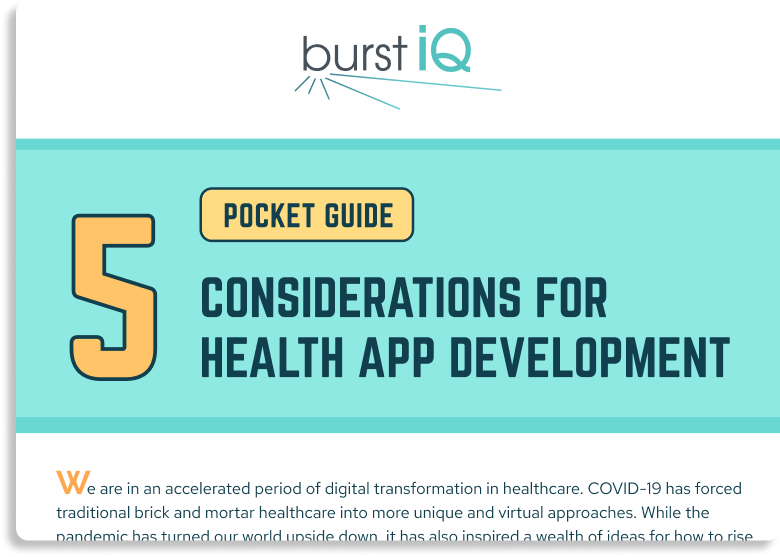KEY CHALLENGES
1.
Fragmented & siloed health data limit innovation
Digital health companies face difficulty accessing and integrating diverse data sources—EHRs, wearables, claims, patient-reported data—hindering the development of comprehensive, effective solutions.
2.
Navigating complex privacy & security regulations
Strict compliance requirements such as HIPAA, GDPR, and emerging digital health laws demand robust data governance, encryption, and consent management to protect sensitive patient information.
3.
Building patient & provider trust
Concerns over data privacy, transparency, and ethical use create barriers to adoption of digital health tools, requiring companies to demonstrate strong security and responsible data stewardship.
4.
Integrating with legacy healthcare systems
Connecting innovative digital platforms with entrenched EHRs and provider workflows is technically challenging and slows time-to-market.
5.
Proving clinical efficacy & business value
Digital health solutions must validate their impact on patient outcomes and cost savings to gain acceptance from payers, providers, and regulators.
6.
Adapting to a rapidly evolving regulatory & technology landscape
Constant changes in data standards, interoperability requirements, and AI governance require agile compliance and technology strategies.
KEY CHALLENGES
1.
Fragmented & siloed health data limit innovation
Digital health companies face difficulty accessing and integrating diverse data sources—EHRs, wearables, claims, patient-reported data—hindering the development of comprehensive, effective solutions.
2.
Navigating complex privacy & security regulations
Strict compliance requirements such as HIPAA, GDPR, and emerging digital health laws demand robust data governance, encryption, and consent management to protect sensitive patient information.
3.
Building patient & provider trust
Concerns over data privacy, transparency, and ethical use create barriers to adoption of digital health tools, requiring companies to demonstrate strong security and responsible data stewardship.
4.
Integrating with legacy healthcare systems
Connecting innovative digital platforms with entrenched EHRs and provider workflows is technically challenging and slows time-to-market.
5.
Proving clinical efficacy & business value
Digital health solutions must validate their impact on patient outcomes and cost savings to gain acceptance from payers, providers, and regulators.
6.
Adapting to a rapidly evolving regulatory & technology landscape
Constant changes in data standards, interoperability requirements, and AI governance require agile compliance and technology strategies.
KEY CHALLENGES
1.
Fragmented & siloed health data limit innovation
Digital health companies face difficulty accessing and integrating diverse data sources—EHRs, wearables, claims, patient-reported data—hindering the development of comprehensive, effective solutions.
2.
Navigating complex privacy & security regulations
Strict compliance requirements such as HIPAA, GDPR, and emerging digital health laws demand robust data governance, encryption, and consent management to protect sensitive patient information.
3.
Building patient & provider trust
Concerns over data privacy, transparency, and ethical use create barriers to adoption of digital health tools, requiring companies to demonstrate strong security and responsible data stewardship.
4.
Integrating with legacy healthcare systems
Connecting innovative digital platforms with entrenched EHRs and provider workflows is technically challenging and slows time-to-market.
5.
Proving clinical efficacy & business value
Digital health solutions must validate their impact on patient outcomes and cost savings to gain acceptance from payers, providers, and regulators.
6.
Adapting to a rapidly evolving regulatory & technology landscape
Constant changes in data standards, interoperability requirements, and AI governance require agile compliance and technology strategies.
HOW LIFEGRAPH HELPS
Unifies Fragmented Health Data into a Single Trusted Platform
LifeGraph integrates diverse data streams—clinical, claims, patient-generated, and more—into a secure, interoperable ecosystem. This breaks down silos and enables digital health innovators to build richer, more accurate models and applications.
Ensures Compliance & Data Privacy by Design
With blockchain-backed data ownership, granular consent controls, and end-to-end encryption, LifeGraph helps digital health companies meet HIPAA, GDPR, and other regulatory requirements while maintaining patient trust.
Accelerates AI & Analytics Adoption
By providing high-quality, trustworthy data and seamless integration with AI tools, LifeGraph empowers companies to develop scalable, clinically validated digital health solutions that improve outcomes.
Simplifies Integration with Existing Healthcare Infrastructure
LifeGraph supports industry standards like HL7 and FHIR, enabling smooth interoperability with EHRs, provider systems, and identity management platforms, reducing IT complexity and speeding deployment.
Builds Trust through Transparency & Patient Empowerment
LifeGraph’s patient-centric data governance model fosters transparency and control, encouraging patient engagement and adoption of digital health services.
Supports Evidence-based Validation & Business Insights
LifeGraph’s unified data platform enables robust outcome tracking, cost analysis, and reporting, helping digital health companies demonstrate value to stakeholders and scale their solutions.
HOW LIFEGRAPH HELPS
Unifies Fragmented Health Data into a Single Trusted Platform
LifeGraph integrates diverse data streams—clinical, claims, patient-generated, and more—into a secure, interoperable ecosystem. This breaks down silos and enables digital health innovators to build richer, more accurate models and applications.
Ensures Compliance & Data Privacy by Design
With blockchain-backed data ownership, granular consent controls, and end-to-end encryption, LifeGraph helps digital health companies meet HIPAA, GDPR, and other regulatory requirements while maintaining patient trust.
Accelerates AI & Analytics Adoption
By providing high-quality, trustworthy data and seamless integration with AI tools, LifeGraph empowers companies to develop scalable, clinically validated digital health solutions that improve outcomes.
Simplifies Integration with Existing Healthcare Infrastructure
LifeGraph supports industry standards like HL7 and FHIR, enabling smooth interoperability with EHRs, provider systems, and identity management platforms, reducing IT complexity and speeding deployment.
Builds Trust through Transparency & Patient Empowerment
LifeGraph’s patient-centric data governance model fosters transparency and control, encouraging patient engagement and adoption of digital health services.
Supports Evidence-based Validation & Business Insights
LifeGraph’s unified data platform enables robust outcome tracking, cost analysis, and reporting, helping digital health companies demonstrate value to stakeholders and scale their solutions.
HOW
LIFEGRAPH HELPS
Unifies Fragmented Health Data into a Single Trusted Platform
LifeGraph integrates diverse data streams—clinical, claims, patient-generated, and more—into a secure, interoperable ecosystem. This breaks down silos and enables digital health innovators to build richer, more accurate models and applications.
Ensures Compliance & Data Privacy by Design
With blockchain-backed data ownership, granular consent controls, and end-to-end encryption, LifeGraph helps digital health companies meet HIPAA, GDPR, and other regulatory requirements while maintaining patient trust.
Accelerates AI & Analytics Adoption
By providing high-quality, trustworthy data and seamless integration with AI tools, LifeGraph empowers companies to develop scalable, clinically validated digital health solutions that improve outcomes.
Simplifies Integration with Existing Healthcare Infrastructure
LifeGraph supports industry standards like HL7 and FHIR, enabling smooth interoperability with EHRs, provider systems, and identity management platforms, reducing IT complexity and speeding deployment.
Builds Trust through Transparency & Patient Empowerment
LifeGraph’s patient-centric data governance model fosters transparency and control, encouraging patient engagement and adoption of digital health services.
Supports Evidence-based Validation & Business Insights
LifeGraph’s unified data platform enables robust outcome tracking, cost analysis, and reporting, helping digital health companies demonstrate value to stakeholders and scale their solutions.
LIFEGRAPH CORE CAPABILITIES
Click on the images below to learn more about each of LifeGraph’s core capabilities.
LIFEGRAPH CORE CAPABILITIES
Click on the images below to learn more about each of LifeGraph’s core capabilities.
LIFEGRAPH CORE CAPABILITIES
Click on the images below to learn more about each of LifeGraph’s core capabilities.


